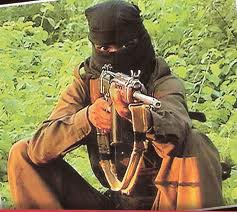Stockholm, Jun 15: Nuclear powers continue to modernise their arsenals, researchers said Monday, warning that tensions were rising and the outlook for arms control was "bleak".
"The loss of key channels of communication between Russia and the USA... could potentially lead to a new nuclear arms race," said Shannon Kile, director of the nuclear arms control programme at the Stockholm International Peace Research Institute (SIPRI) and co-author of the report.
Russia and the US account for more than 90 percent of the world's nuclear weapons.
Kile was referring to the future of the New START treaty between the US and Russia, which is set to expire in February 2021.
It is the final nuclear deal still in force between the two superpowers, aimed at maintaining their nuclear arsenals below Cold War levels.
"Discussions to extend New START or to negotiate a new treaty made no progress in 2019," the SIPRI researchers noted.
At the same time, nuclear powers continue to modernise their weapons while China and India are increasing the size of their arsenals.
"China is in the middle of a significant modernisation of its nuclear arsenal. It is developing a so-called nuclear triad for the first time, made up of new land- and sea-based missiles and nuclear-capable aircraft," SIPRI said.
The country has repeatedly rejected Washington's insistence that it join any future nuclear arms reduction talks.
The number of nuclear warheads declined in the past year.
At the start of 2020, the United States, Russia, Britain, China, India, Pakistan, Israel and North Korea together had 13,400 nuclear arms, according to SIPRI's estimates, 465 fewer than at the start of 2019.
The decline was attributed mainly to the United States and Russia.
While the future of the New START treaty remains uncertain, Washington and Moscow have continued to respect their obligations under the accord.
"In 2019, the forces of both countries remained below the limits specified by the treaty," the report said. But both nations "have extensive and expensive programmes underway to replace and modernise their nuclear warheads, missile and aircraft delivery systems, and nuclear weapon production facilities," it added.
"Both countries have also given new or expanded roles to nuclear weapons in their military plans and doctrines, which marks a significant reversal of the post-Cold War trend towards the gradual marginalisation of nuclear weapons."
The Treaty on the Non-Proliferation of Nuclear Weapons (NPT), a cornerstone of the global nuclear non-proliferation regime, celebrates its 50th anniversary this year.
The number of nuclear arms worldwide has declined since hitting a peak of almost 70,000 in the mid-1980s.
The five original nuclear powers -- Washington, Beijing, Moscow, Paris and London -- in March reiterated their commitment to the treaty.






Comments
Add new comment